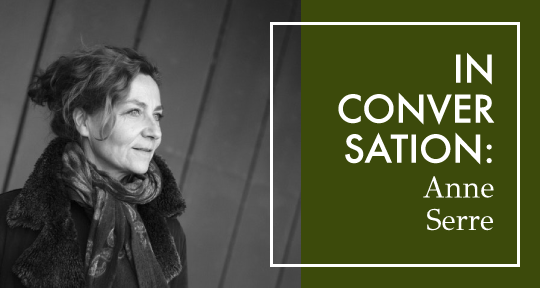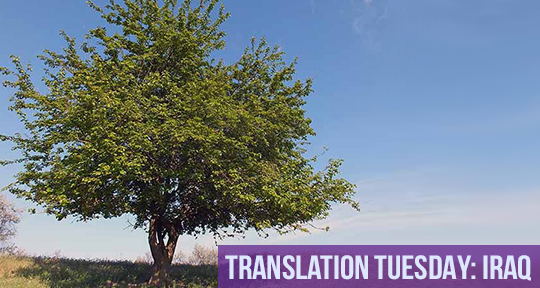Anne Serre has been published steadily in her native France since the release of her debut novel, Les Gouvernantes, in 1992, but it wasn’t until October 2018, when New Directions published it as The Governesses, translated by Mark Hutchinson, that her writing was made available to an English-speaking audience. The Governesses was followed by The Fool in October 2019, a collection of three unlinked but thematically cohesive novellas. Serre’s two books tell enchanting and surprising stories, both delightful in style and shocking in their disregard for moral norms. At their heart is the subject of the fulfillment of desire—desires which range from living absolutely for the story to the taboo of incest; this jarring mix of charm and discomfort makes for a unique and surprising reading experience. Here, in a rare English-language interview, Serre speaks about her work in translation, her “infinite conversation” with longtime friend and translator, Mark Hutchison, and unravels some of the mystery surrounding her untranslated work.
—Tristan Foster
Tristan Foster (TF): In your essay published in Granta, entitled “How I Write My Books,” you state that you begin with a sentence, that this is the gate through which the rest of the story enters—this sentence and those which follow are the product of your reading and your thinking and living life. You write: “It requires on my part months of silence and solitude, a form of inner tranquillity, and close attention to what is taking shape inside me.” You frame this as something less serendipitous than it is magical, using the language of the occult—mystery, trickery, secret ceremonies—to describe it. How important is the magical for you, both in your writing and how you think of it?
Anne Serre (AS): I don’t believe in magic, neither in life nor in writing! When I try to describe how I write, I’m describing a mental process in which memory and imagination meet like two rivers that suddenly flow together. It’s a bit of a mystery because, for me, this only ever happens in writing. You might compare it to a child at play. When a child pretends to be a character and invents a situation, he is both himself and the invented character.
TF: It was also a delight for me to read, in that same piece, your view that the writing is a patchwork—of memories, your previous work, and the imagination, but one which “appears to be cut from the same cloth, and a cloth that is new and without a snag.” I say that because the story told in The Governesses seems to me to contain a perfect world of its own, one that is recognisable from fairy tales encountered as a child as well as, perhaps, Emma and Jane Eyre and Vanity Fair, an ecosystem in total balance, so much so it might pop if poked with a stick. The Governesses was your first book, originally published in 1992; why has building this kind of world been so important to you from the outset?
AS: I used to say that I came to literature through “the door of enchantment” because it was the only door open to me. I tried to find other doors but I couldn’t. Sometimes I think that 99% of my early material was made up of my reading and my daydreams about my reading. I was full of fiction. Maybe a little too much to make do with just living. READ MORE…


